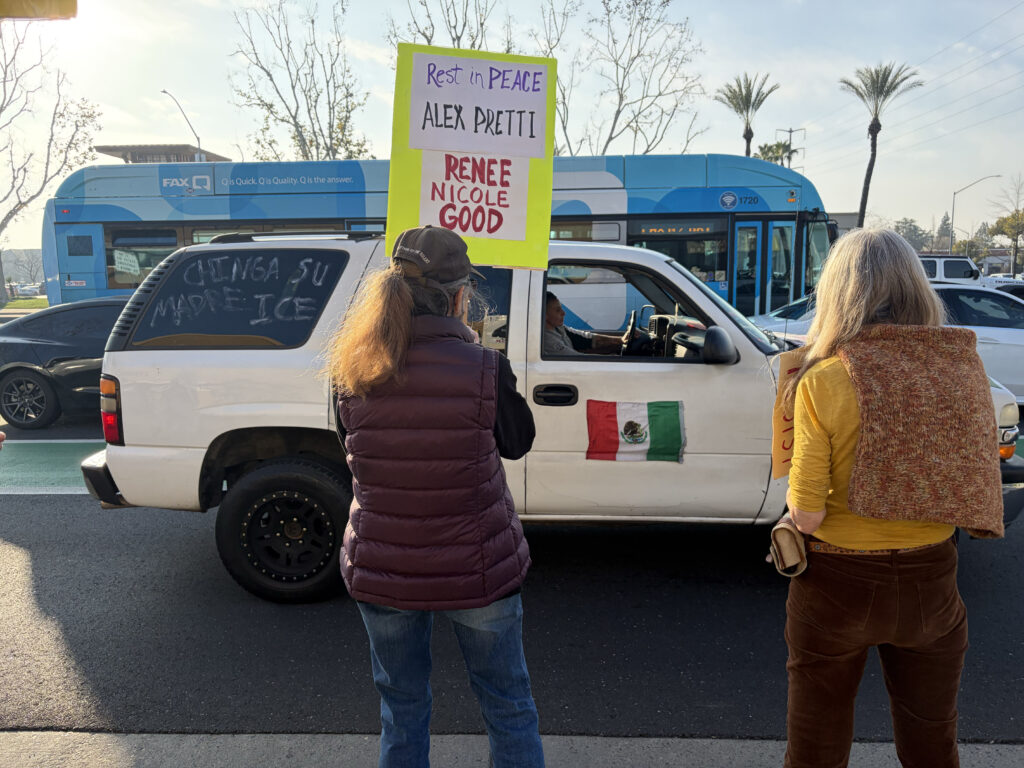AB 831 would ban companies — and tribes that don’t own casinos — from offering online sweepstakes games in California. (Shutterstock)

- Small tribes such as the Kletsel Dehe Wintun Nation were dealt a devasting blow when the Legislature passed AB 831.
- The measure would ban companies — and tribes that don’t own casinos — from offering online sweepstakes games in California.
- Other states have found more equitable paths. In Washington, for example, tribes can lease unused gaming machine rights to each other.
Share
|
Getting your Trinity Audio player ready...
|
This commentary was originally published by CalMatters. Sign up for their newsletters.
A stacked deck doesn’t just tilt the odds, it erases fairness. When the powerful and wealthy dictate the terms, smaller voices are silenced and opportunity is denied.
Charlie Wright
Special for CalMatters
Opinion
Recently my tribe, the Kletsel Dehe Wintun Nation, received a devastating blow when the California Legislature passed Assembly Bill 831. The measure would ban companies — and tribes that don’t own casinos — from offering online sweepstakes games in California.
Wealthy, mega-casino tribes used their influence to push this legislation, which locks rural and less advantaged tribes out of digital revenue opportunities — the one arena where less economically advantaged tribal nations could compete with them on a more equal footing and begin meeting the basic needs of our people.
To understand why we oppose this bill you need to understand who we are.
About My Tribe
Kletsel Dehe is a small Wintun tribe of 295 citizens in Colusa County, about 70 miles north of Sacramento. Like many rural tribes, we face persistent barriers to economic opportunity: Jobs are scarce, infrastructure is limited and isolation entrenches poverty.
More than two decades ago, California voters approved Propositions 5 and 1A, legalizing tribal gaming. Those efforts succeeded because all tribes stood together. Voters believed they were creating opportunity and self-sufficiency for every tribal community. Without that unity, there would be no mega-casinos in California.
But over time, that promise fractured. A handful of tribes with prime locations became ultra wealthy, with billion-dollar casinos, resorts and resources to solve infrastructure needs. These tribes renegotiated compacts, blew past the original 2,000-machine limit and some even expanded into Las Vegas.
Meanwhile, dozens of other tribes opened smaller casinos in less profitable locations, keeping their governments afloat but generating only modest revenue.
And non-gaming tribes like mine, without prime casino locations, were locked into a flat $1.1 million annual stipend from the revenue sharing trust fund. The amount hasn’t changed in 25 years, though inflation has cut its real value in half.
Legislature Bends to Wealthy Tribes
When wealthy tribes argue for laws like AB 831, they sometimes invoke “tribal struggles” — as if all tribes share the same reality. Many tribes resolved those challenges years ago, while rural and small-market tribes continue to face them every day.
We do not begrudge their success. But it’s unfair and hypocritical for these well-off tribes to now argue that our partnerships with social gaming companies threaten sovereignty.
Their own casinos were built with outside vendors, Wall Street financing and non-tribal management contracts. To deny smaller tribes the same tools is not about sovereignty. It’s about monopoly.
Other states have found more equitable paths. In Washington, for example, tribes can lease unused gaming machine rights to each other. This ensures that every tribe, gaming or not, has a real stake in the industry.
California took the opposite approach, a frozen stipend for the many, and unlimited expansion for the few. AB 831 extends that inequity into the digital era, cutting off innovation before it can begin.
AB 831 Stacks the Deck
To be clear, the wealthiest tribes are already preparing for digital gaming. They’re building social gaming platforms so when iGaming is legalized, they will dominate once again.
The rest of us will be left outside, still waiting for meaningful access to the opportunities voters thought they gave all tribes 25 years ago.
Politics often comes down to how deep your pockets are. But less wealthy tribes like mine are done being told to stay quiet while opportunity passes us by.
The courage to challenge a stacked deck, even when the odds are against you, changes systems and forces fairness back into the rules.
California gaming was built on unity. AB 831 betrays that legacy.
About the Author
Charlie Wright is chairman of the Kletsel Dehe Wintun Nation.
Make Your Voice Heard
GV Wire encourages vigorous debate from people and organizations on local, state, and national issues. Submit your op-ed to bmcewen@gvwire.com for consideration.
This article was originally published on CalMatters and was republished under the Creative Commons Attribution-NonCommercial-NoDerivatives license.
RELATED TOPICS:
Categories



















